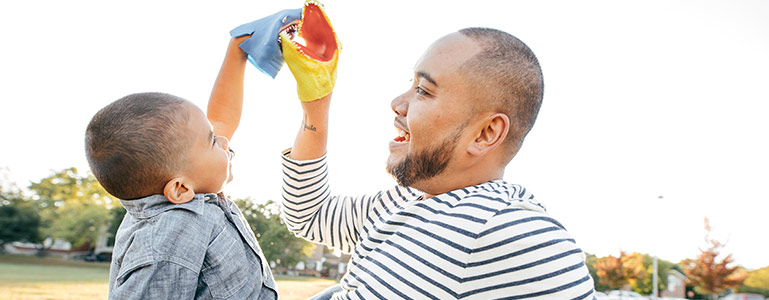The world lost a great parent and child advocate with the death of Dr. T. Berry Brazelton, pediatrician and author of Touchpoints: Your Child’s Emotional and Behavioral Development, at the age of 99.
Brazelton’s seminal research focused on the newborn-parent relationship and the importance of the newborn individual’s behaviors, which he described as purposeful and meaningful. His ideas revolutionized the way we understand child development as an active, rather than passive, process.
Brazelton shaped our contemporary thinking about the reciprocity between infant behavior and mother behavior, a critical relationship that directly promotes healthy growth and development. He also described a child’s developmental path as alternating between periods of balance and disequilibrium, those sensitive “touchpoints” when children’s behavior falls apart as they ready themselves for a huge growth spurt.
In Brazelton’s honor, here are three practical parenting guidelines for surviving these “touchpoints,” which can disrupt the routines of everyday life, cause turmoil between parent and child, and shake our confidence in our own parenting choices.
- Remember that the only constant is change.
The moment you settle into a regular, predictable routine, prepare yourself for the next big developmental growth spurt, which is most certainly right around the corner. Think of it as a big reset button. It’s a chance to re-evaluate what’s working and what’s not working in the parent-child relationship. Be flexible and focus only on changing the things in your domain of control: the environment, the schedule, and the routines. Mix it up. Try a picnic in the living room if mealtimes at the table are becoming harder. Move up bedtime. Or do bath in the morning, instead of the evening. These things are much easier to change than trying to change your child.
- Try creative strategies to work through transitions.
Are your daily transitions more problematic than usual? When a child is in a period of disequilibrium, everything is more challenging. Pull out a transition game or strategy to change activities, get through morning and evening routines, or go from one location to another. Some easy starter activities include: make it a race, act like an animal, follow-the-leader, or walk backwards. Try anything that turns a transition moment into an opportunity for connection and playful interaction.
- Practice empathy.
The amount of struggle you experience in parenting is equal to the difficulties your child encounters in the world around them. Remember how challenging it was to listen, learn, and accept help from your own parent or grandparent? Remember those best friend/worst enemy friendships you navigated from preschool through high school? Remember how hard it was (and maybe still is!) to accept a firm “No?” Children have to learn all those lessons you did. Be empathetic. It’s hard to be a kid. It’s not their fault that they’re tired and hungry—growing up is an exhausting adventure. Freely give out hugs (and accept them whenever offered).
Brazelton reminds us that “learning to parent is made up of learning from mistakes—not from successes. Mistakes we remember well, successes are easily forgotten.” Parenthood is a humbling experience. If we find the strength to acknowledge our vulnerability, our role as learners, and the awe-inspiring wonder of human development, we can strive to create emotionally-safe, supportive, and loving environments for our children and for ourselves.
Heidi Emberling, MA, is an early childhood educator and child development specialist at Parents Place on the Peninsula.



